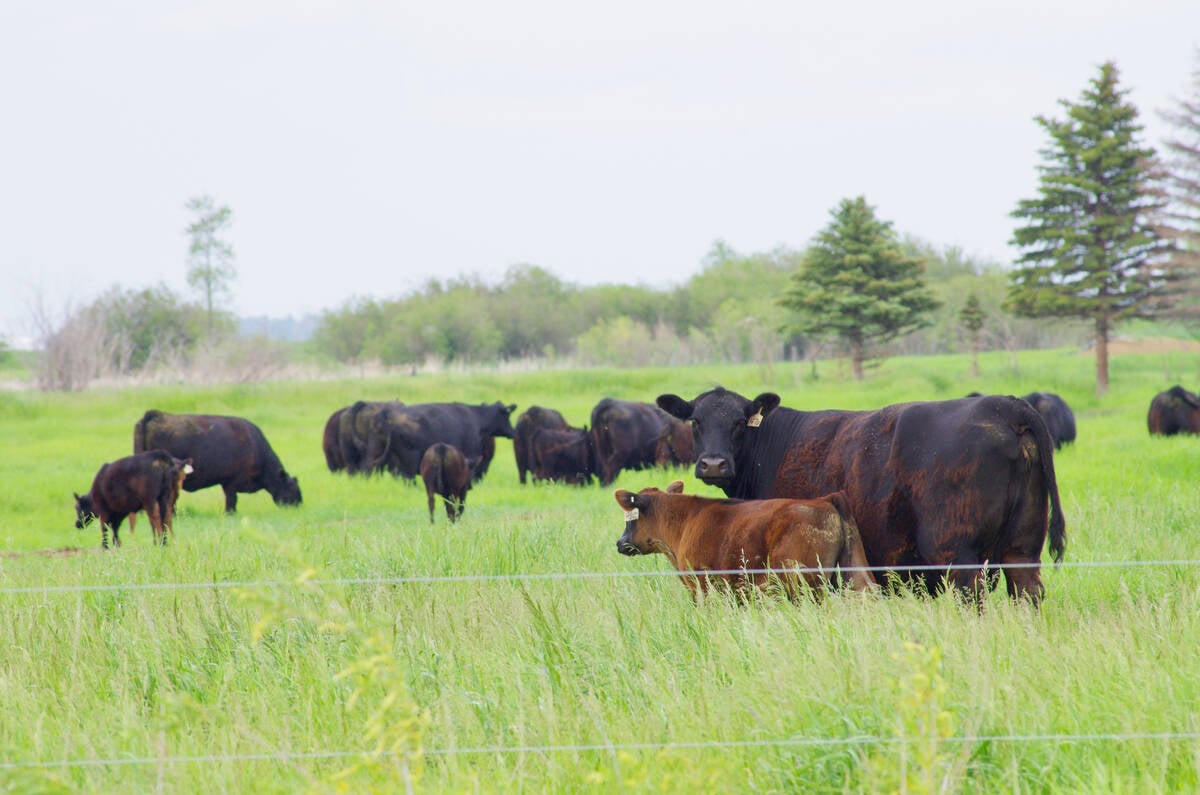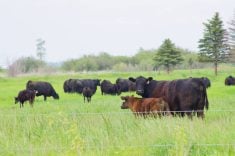TABER, Alta. – A smooth sales job directed at Iran earned the Canadian Wheat Board a new customer last year.
Iran never bought durum before but after meeting with wheat board officials, visiting farms and working with the Canadian International Grains Institute, the Iranians asked for 600,000 tonnes of durum in 1996.
Durum is used to make pasta. Prior to this purchase Iranian millers used a hard wheat variety, said Lorne Hehn, chief commissioner of the board.
He explained the marketing procedure to win over new customers at last week’s wheat board Grain Days held here.
Read Also

Tick research from the University of Manitoba focuses on insects and testing
Manitoba researchers are looking into the effects of tick and fly disease in cattle.
Canada leads the world durum trade. Only about 4.5 million tonnes appears on the international market and Canada sells about 60 percent of it to countries like Algeria, Italy, Morocco and Venezuela. Algeria takes about 1.2 million tonnes a year while the others each use about 300,000 tonnes. Canada uses about 300,000 tonnes at home.
“We’re a very big player in the world durum market,” said Hehn.
New requests come in all the time for different products so new and currently registered grain varieties are being tested to see how they match international demands.
For example, Middle East clients want white-skinned wheats that produce better flat bread. A new variety, CPS Vista, looks promising for those markets, said Hehn.
New customers are emerging. As people in developing nations achieve a better standard of living, they tend to switch from rice-based foods to wheat-based products, mainly noodles which are eaten three times a day in many households, said Hehn. Of the flour purchased by Asian nations, about 85 percent goes for noodle making.
For southern Albertans, winter wheat is part of crop rotations and is desirable as a noodle making variety.
Customers have been targeted in Iran, Thailand, South Korea and Malaysia, said Gordon Bacon of the board marketing development division. He spoke earlier in the day at the winter wheat growers convention in Lethbridge.
Thai millers blend winter wheat flour with a hard red wheat from the United States to produce flour for steam bread, buns and all-purpose flour for small bakeries.
There have been some mixing and baking problems with winter wheat and Bacon suggested a few solutions.
Offshore customers need to be involved in quality testing and make sure there is similarity in test results when mixing and baking. More winter wheat samples off the farm are needed for further baking quality tests.
Plant breeders, sellers and farmers need to discuss the final purpose of a grain. Costs of producing special crops have to be considered because many fear the farmer will carry the added costs of producing such grains but see few benefits.
“While some will suggest that we should produce special wheats for special uses, the practicality of this type of system will have to be looked at with a serious eye,” said Bacon.
During the Jan. 16 meeting wheat board officials faced a critical crowd of about 150 people.
Farmers doubtful
Farmers challenged how the board does business and expressed skepticism about a study last year that said the single-desk seller does a good job for western farmers.
Chief commissioner Lorne Hehn said farmers must trust the wheat board and respect that it does behave with integrity. He was met with replies that trust is gone.
Specific skepticism was directed at the report conducted by economists Daryl Kraft, Ed Tyrchniewicz and W. Hartley Furtan because there was no peer review by independent economists.
Others complained they wanted more than one option to sell their wheat and barley. They want a more open system with the ability to pursue markets on their own.
When asked why the board is afraid of dual marketing Hehn said, “I’m not saying a dual market wouldn’t work. We would be competing with our agents ,the elevator companies,” he said.
He doesn’t believe the board could survive such sweeping changes as farmers said were due.

















